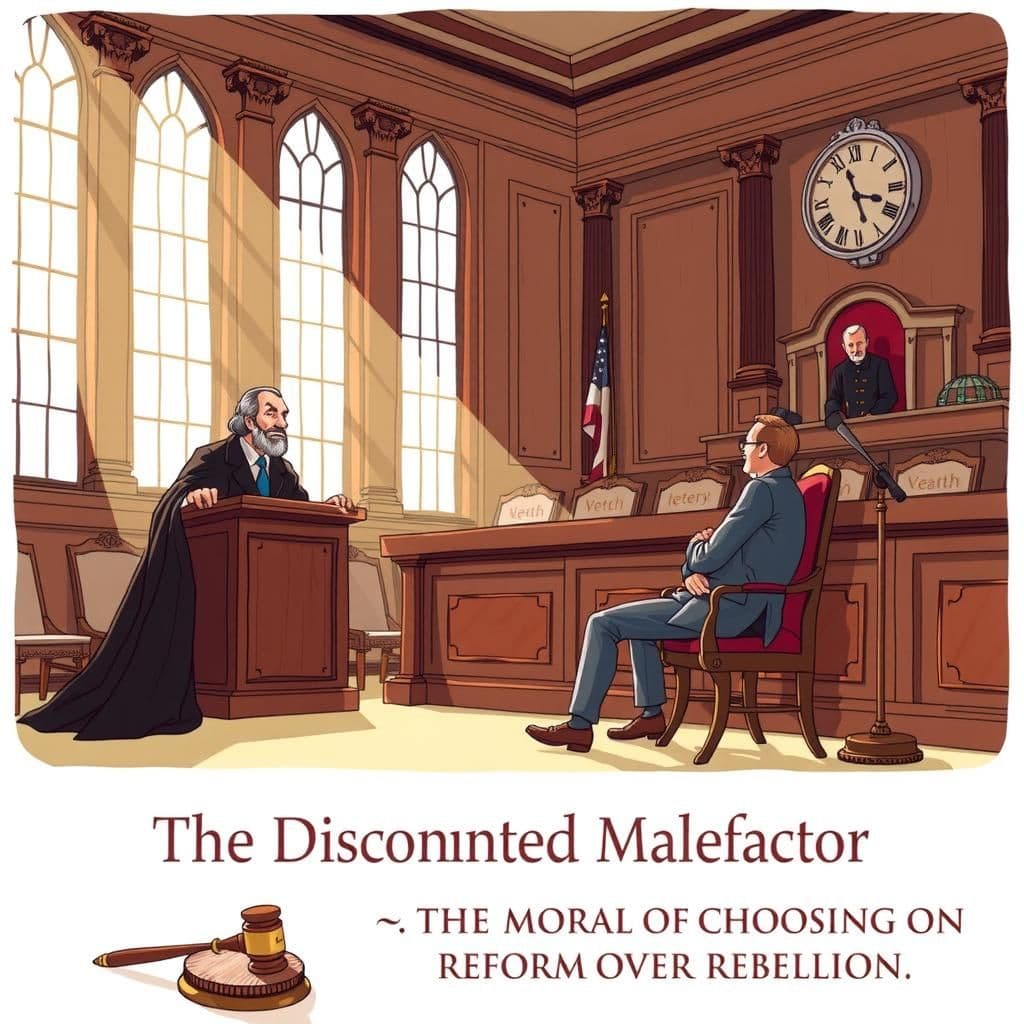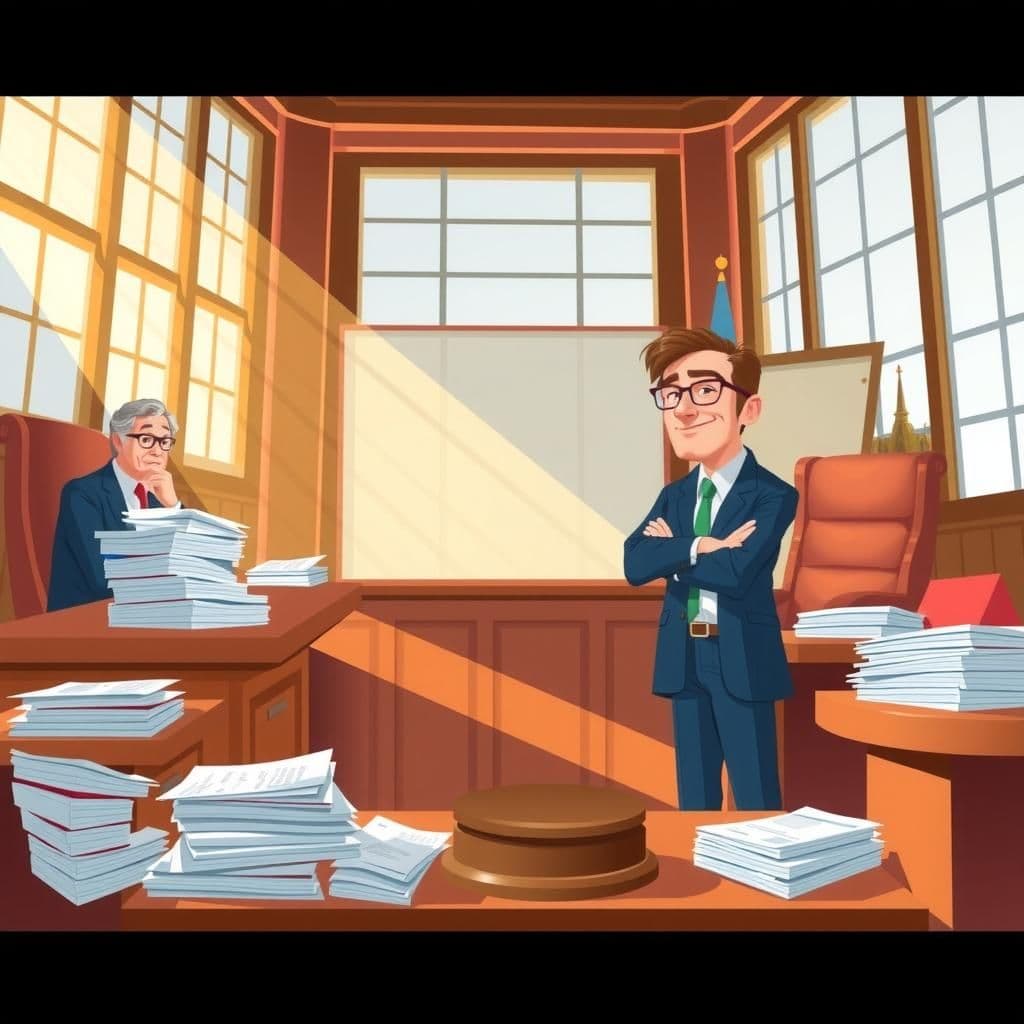The Discontented Malefactor

Story Summary
In the unique moral story "The Discontented Malefactor," a judge sentences a criminal to three years in prison and attempts to impart a lesson on the drawbacks of crime and the benefits of reform. The malefactor, uninterested in reformation, humorously requests to extend his sentence to ten years in exchange for skipping the moral lecture, showcasing a clever twist in this concise moral story. This short story with moral lessons highlights the complexities of human nature and the resistance to change, making it a thought-provoking bedtime moral story.
Click to reveal the moral of the story
The story illustrates that some individuals may prefer punishment over the moral lessons that come with it, highlighting a resistance to personal reform and the value of accountability.
Historical Context
This story reflects a common theme in literature and folklore where characters confront authority figures, often through wit and irony, to challenge societal norms about punishment and morality. The trope of a clever malefactor outsmarting a judge can be traced back to various cultural narratives, including fables and satirical tales from ancient Greece and Rome, as well as more modern retellings in literature and theater that critique legal systems and explore human behavior. The interplay between justice and personal accountability is a recurring motif in these narratives, underscoring the often absurd nature of punishment and reform.
Our Editors Opinion
This story highlights the human tendency to seek the path of least resistance, even when faced with the consequences of our actions. In modern life, this can be seen in how some individuals may prefer to serve a sentence rather than confront the deeper issues that led to their criminal behavior, such as attending rehabilitation programs or engaging in personal reflection. For instance, a young adult caught shoplifting might opt for community service instead of attending mandatory counseling sessions that address underlying issues like financial desperation or low self-esteem, demonstrating a reluctance to engage in the hard work of personal growth.
You May Also Like

The Judge and the Rash Act
In this humorous story with a moral, a discontented judge, desperate for recognition and contemplating suicide due to his lackluster career, encounters a ghostly figure known as the "Rash Act." When the figure offers to be committed, the judge declines, insisting that it would be improper to act on such a whim while not serving as a committing magistrate. This quick moral story highlights the absurdity of rigid adherence to duty, making it a fitting addition to short story collections with moral lessons for young readers.

A Hasty Settlement
In "A Hasty Settlement," an attorney proposes to reopen a concluded estate case after realizing there may be remaining assets, prompting the judge to reconsider the initial valuation. This concise moral story highlights the importance of diligence and the potential for overlooked opportunities, reminding readers that lessons learned from stories can inspire a deeper understanding of justice and fairness in seemingly settled matters.

The Man with No Enemies
In "The Man with No Enemies," an inoffensive person is brutally assaulted by a stranger, leading to a trial where he claims to have no enemies. The defendant argues that this lack of enemies was the very reason for the attack, prompting the judge to dismiss the case with a humorous yet moral lesson: a person without enemies cannot truly have friends, and thus should not seek justice in court. This short story serves as a thought-provoking moral lesson for students about the complexities of relationships and the nature of conflict.
Other names for this story
The Unrepentant Criminal, A Malefactor's Plea, The Judge's Dilemma, Crime and Commutation, The Reluctant Convict, Sentenced to Silence, The Penitentiary Paradox, Reform or Retribution
Did You Know?
This story humorously highlights the theme of human nature's aversion to self-improvement, suggesting that individuals often prefer the certainty of punishment over the discomfort of moral introspection and change.
Subscribe to Daily Stories
Get a new moral story in your inbox every day.